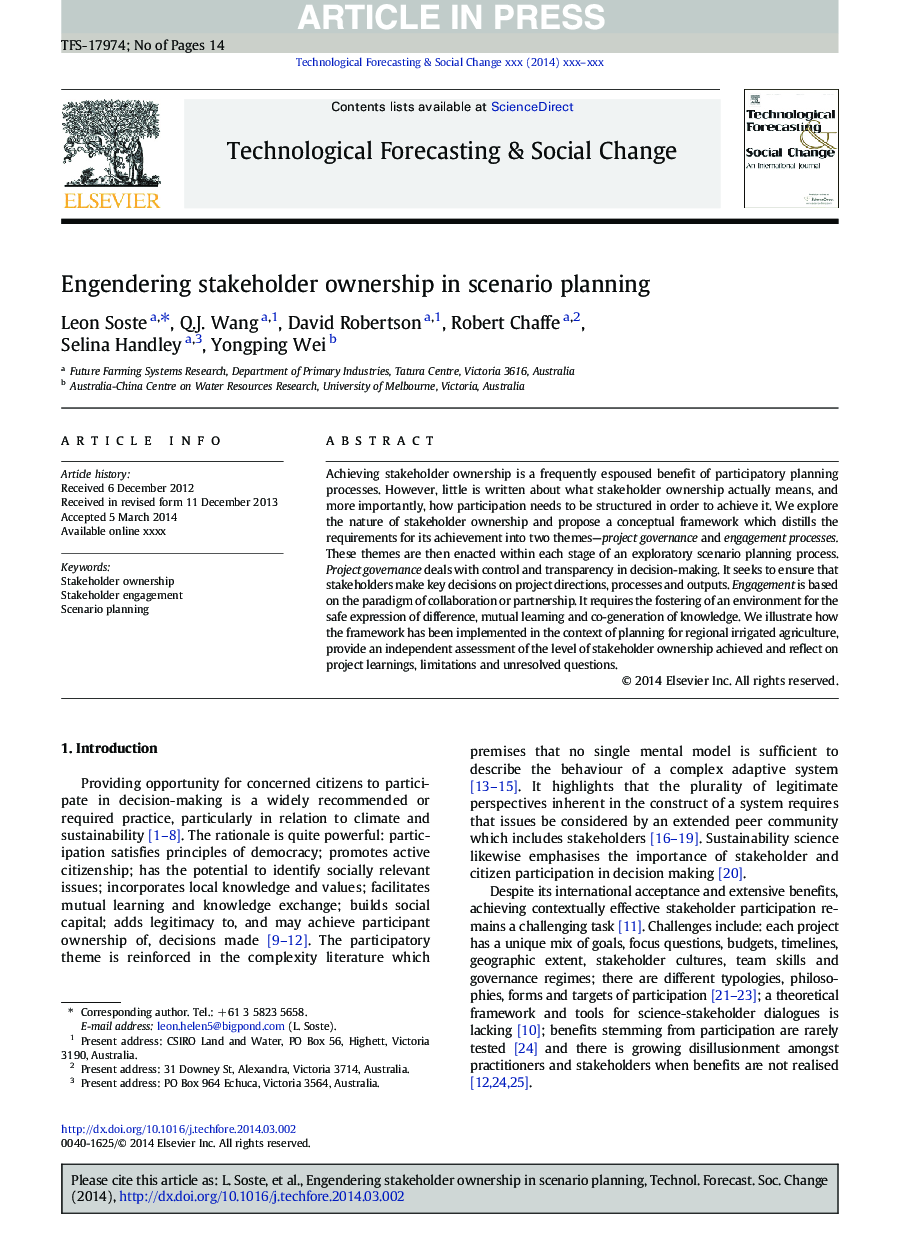| Article ID | Journal | Published Year | Pages | File Type |
|---|---|---|---|---|
| 7256931 | Technological Forecasting and Social Change | 2015 | 14 Pages |
Abstract
Achieving stakeholder ownership is a frequently espoused benefit of participatory planning processes. However, little is written about what stakeholder ownership actually means, and more importantly, how participation needs to be structured in order to achieve it. We explore the nature of stakeholder ownership and propose a conceptual framework which distills the requirements for its achievement into two themes-project governance and engagement processes. These themes are then enacted within each stage of an exploratory scenario planning process. Project governance deals with control and transparency in decision-making. It seeks to ensure that stakeholders make key decisions on project directions, processes and outputs. Engagement is based on the paradigm of collaboration or partnership. It requires the fostering of an environment for the safe expression of difference, mutual learning and co-generation of knowledge. We illustrate how the framework has been implemented in the context of planning for regional irrigated agriculture, provide an independent assessment of the level of stakeholder ownership achieved and reflect on project learnings, limitations and unresolved questions.
Related Topics
Social Sciences and Humanities
Business, Management and Accounting
Business and International Management
Authors
Leon Soste, Q.J. Wang, David Robertson, Robert Chaffe, Selina Handley, Yongping Wei,
